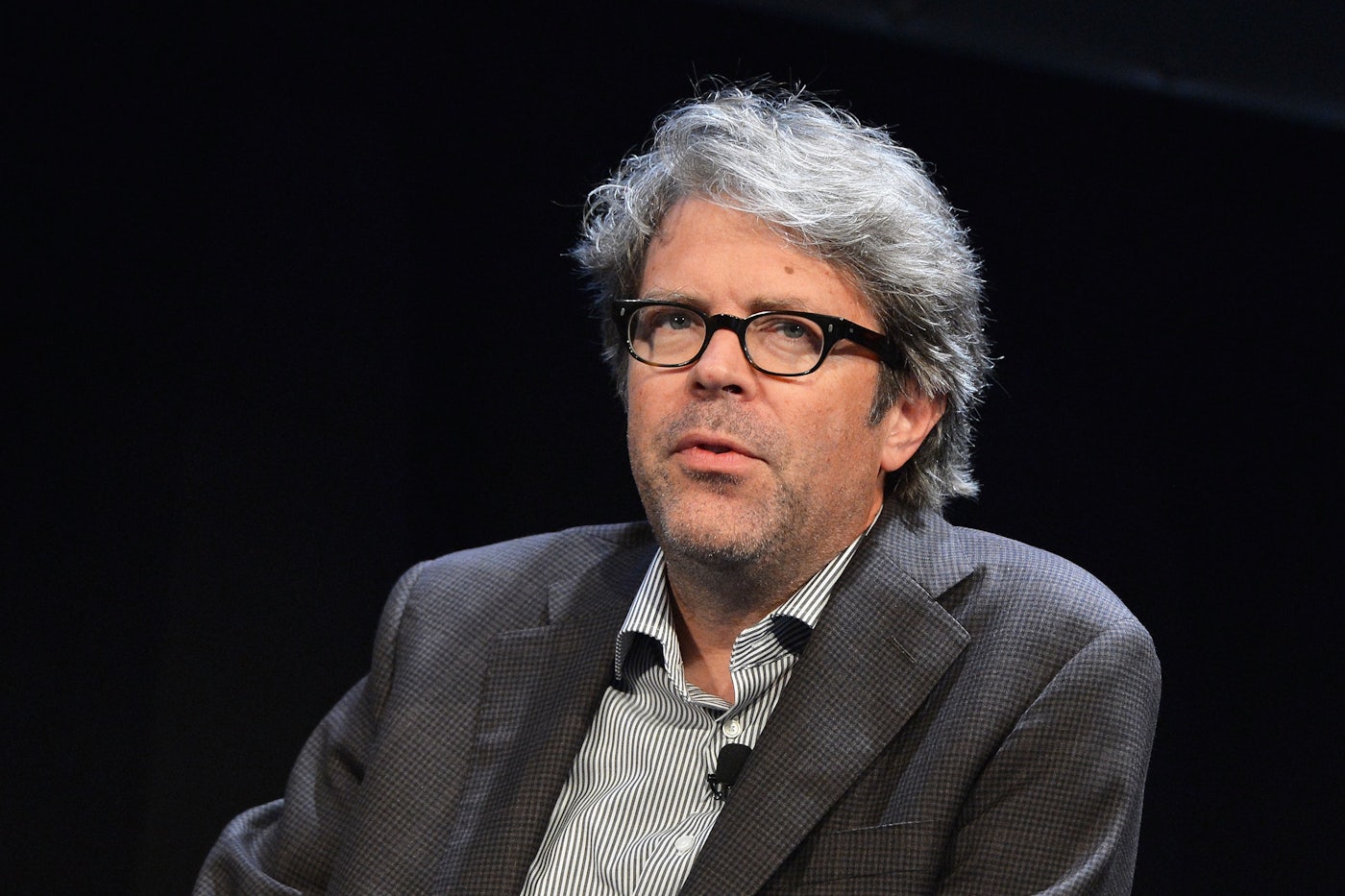Alex Shephard & The New Republic: A Voice Shaping Progressive Thought
In the ever-evolving landscape of American political commentary, few voices resonate with the incisiveness and intellectual rigor of Alex Shephard at The New Republic. His work provides a crucial lens through which to understand the complex dynamics of contemporary politics, offering analysis that is both deeply informed and remarkably accessible. As a prominent figure within one of America's oldest and most influential progressive publications, Shephard has carved out a unique niche, contributing significantly to the ongoing discourse.
This article delves into the career and impact of Alex Shephard, exploring his journey, his distinctive journalistic approach, and the profound influence he wields through his contributions to The New Republic. We will examine how his writing not only informs but also challenges readers, fostering a more nuanced understanding of the political world around us.
Table of Contents
- Who is Alex Shephard?
- Alex Shephard and The New Republic: A Symbiotic Relationship
- The Distinctive Voice of Alex Shephard
- Impact and Influence in Political Discourse
- Navigating the Digital Age: Alex Shephard's Online Presence
- Critical Reception and Public Perception
- The Future of Progressive Journalism: Insights from Alex Shephard
- Beyond the Byline: Alex Shephard's Broader Contributions
Who is Alex Shephard?
Alex Shephard is a highly respected staff writer at The New Republic, a publication renowned for its intellectual rigor and progressive commentary. His career trajectory reflects a deep commitment to political journalism, marked by a return to The New Republic after a period of significant upheaval at the magazine. Shephard is widely recognized for his astute analysis of American politics, particularly his focus on the Republican Party, conservative movements, and the broader media landscape. His writing often blends sharp wit with a skeptical eye, underpinned by extensive institutional knowledge.
The name "Alex," itself a diminutive of "Alexander," carries a rich etymology, stemming from the Greek words "alex-" meaning "to protect" and "-aner" meaning "man." This linguistic heritage, while perhaps coincidental, subtly echoes the protective, scrutinizing role Shephard often adopts in his journalism, guarding against misinformation and dissecting political narratives for his readership. His work is not merely reportage; it's an act of intellectual protection, offering clarity in a frequently muddled political environment.
Personal Data & Background
While Alex Shephard maintains a professional focus in his public persona, certain key details about his career and background are publicly known:
| Category | Detail |
|---|---|
| Full Name | Alex Shephard |
| Primary Occupation | Staff Writer / Journalist |
| Primary Affiliation | The New Republic |
| Known For | Incisive political commentary, analysis of conservative politics, media criticism, progressive thought. |
| Key Themes | Republican Party dynamics, conservative ideology, media bias, political strategy, democratic institutions. |
| Education | Information not widely publicized, typical of many journalists who build their reputation through their work. |
| Years Active | Active in political journalism for over a decade, with a significant tenure at The New Republic. |
Shephard's journey into political commentary was not an overnight sensation but a gradual ascent, built on consistent, high-quality output. His early career likely involved honing the analytical skills and deep understanding of political processes that now define his contributions to The New Republic.
Alex Shephard and The New Republic: A Symbiotic Relationship
The relationship between Alex Shephard and The New Republic is more than just an employment arrangement; it's a symbiotic partnership that has significantly shaped both the writer's career and the magazine's contemporary voice. The New Republic, founded in 1914, has a storied history as a leading voice in American liberalism and intellectual discourse. Its pages have been graced by some of the most influential thinkers and writers of the 20th and 21st centuries. Shephard's presence there reinforces the magazine's commitment to rigorous, progressive analysis in an era often characterized by superficiality.
Shephard's return to The New Republic after the controversial ownership changes and staff exodus in 2014 speaks volumes about his dedication to its mission and his belief in its potential. This period marked a critical juncture for the magazine, and his decision to rejoin signaled a commitment to rebuilding its intellectual foundation. His work since then has been instrumental in re-establishing The New Republic as a vital platform for thoughtful political commentary, particularly from a left-leaning perspective that isn't afraid to challenge conventional wisdom or its own side.
The Evolution of The New Republic
The New Republic has always adapted to the political currents of its time, evolving from a voice for progressive reform in the early 20th century to a nuanced, sometimes contrarian, liberal journal. Its intellectual lineage includes figures like Herbert Croly, Walter Lippmann, and Leon Wieseltier. In recent decades, the magazine has navigated the complexities of digital media, changing ownership, and a highly polarized political landscape. Alex Shephard's contributions have been crucial in this ongoing evolution, helping to define the magazine's contemporary identity.
His articles often reflect the magazine's traditional emphasis on deep dives into policy and political strategy, while also embracing a more modern, direct style suited for online consumption. This blend ensures that The New Republic remains relevant to both long-time readers and a new generation seeking insightful political analysis. The magazine provides Alex Shephard with the platform and editorial freedom to explore complex issues, and in turn, Shephard's distinctive voice helps attract and retain a loyal readership for The New Republic.
The Distinctive Voice of Alex Shephard
What sets Alex Shephard apart in the crowded field of political journalism is his distinctive voice – a blend of sharp analytical prowess, a healthy dose of skepticism, and an often-understated wit. He doesn't shy away from complex topics, instead choosing to dissect them with precision and clarity. His writing is characterized by a deep understanding of political history and an ability to connect current events to broader ideological trends.
Shephard's commentary frequently targets the internal dynamics and strategic missteps of the Republican Party, offering insights that are often overlooked by mainstream media. He excels at deconstructing conservative rhetoric, revealing the underlying motivations and implications of political messaging. His articles are not merely opinion pieces; they are meticulously argued essays that invite readers to engage with the material on an intellectual level. Whether he's discussing the nuances of a legislative debate or the latest gaffe from a political figure, Alex Shephard approaches his subjects with a commitment to intellectual honesty and a keen eye for detail.
Unpacking His Commentary
To truly appreciate Alex Shephard's impact, one must unpack the layers of his commentary. He often employs a technique of sustained critique, building a compelling case through careful observation and logical deduction. For instance, in analyzing the Republican Party's post-Trump identity, Shephard doesn't just state conclusions; he guides the reader through the ideological shifts, the internal power struggles, and the electoral consequences. His work often serves as a valuable resource for anyone seeking to understand the intricacies of modern conservatism.
Moreover, Shephard's writing style is engaging without being sensationalist. He avoids the traps of hyper-partisanship, even as he champions progressive ideals. His prose is clean, direct, and avoids unnecessary jargon, making complex political concepts accessible to a broad audience. This commitment to clarity, much like understanding the precise meaning of phrases like "Alex is going home at 4 o'clock" (indicating definite plans), ensures his readers grasp the full weight of his arguments. It's this dedication to clear, well-reasoned analysis that makes his contributions to The New Republic so valuable.
Impact and Influence in Political Discourse
The work of Alex Shephard at The New Republic extends beyond the pages of the magazine; it actively shapes political discourse. His analyses are frequently cited, shared, and debated across various platforms, influencing not only general readers but also fellow journalists, academics, and political operatives. In an era saturated with information, Shephard's ability to cut through the noise and offer incisive, well-researched commentary positions him as a significant voice in progressive thought.
His influence is particularly evident in the way he frames discussions around the Republican Party and conservative media. By consistently providing deep, critical insights, he helps to inform the strategy and understanding of those on the left, while also offering a unique perspective for those on the right who are willing to engage with critical self-reflection. The impact of Alex Shephard lies in his capacity to not just report on politics, but to interpret its underlying currents, offering a framework for understanding the forces at play in contemporary American society. His contributions are a testament to the enduring power of thoughtful, well-crafted journalism in a fragmented media landscape.
Navigating the Digital Age: Alex Shephard's Online Presence
In today's media environment, a journalist's influence extends far beyond traditional print. Alex Shephard has adeptly navigated the digital age, utilizing platforms like Twitter (now X) to amplify his insights, engage with readers, and participate in real-time political commentary. His online presence is an extension of his journalistic persona at The New Republic: sharp, informed, and often witty. He uses social media not for self-promotion in a superficial sense, but as a tool for disseminating information and fostering dialogue.
Through his tweets and online interactions, Shephard often provides quick, pithy takes on breaking news, points to articles of interest (both his own and others'), and engages in discussions with other journalists, academics, and the public. This direct engagement allows for a more immediate connection with his audience, bridging the gap between the formal articles published in The New Republic and the rapid-fire nature of online discourse. It’s a testament to his adaptability and understanding of how modern journalism operates, ensuring that his voice remains relevant and accessible to a broad, digitally native audience.
Critical Reception and Public Perception
Alex Shephard's work at The New Republic generally garners significant praise from readers and critics who value rigorous political analysis. He is often lauded for his intellectual honesty, his ability to dissect complex issues, and his consistent output of high-quality commentary. For those seeking a deeper understanding of American politics, particularly from a progressive viewpoint, Shephard is considered a reliable and insightful source. His articles are frequently shared within intellectual circles and progressive media, indicating a strong positive reception among his target audience.
However, like any prominent political commentator, Alex Shephard is not immune to critique. Some might find his focus on the Republican Party too singular, or his progressive leanings too pronounced. Yet, even those who disagree with his conclusions often acknowledge the strength of his arguments and the thoroughness of his research. In a polarized political climate, it is inevitable that a voice as distinct as Shephard's will elicit a range of responses, from ardent agreement to thoughtful disagreement. His ability to provoke thought and discussion, regardless of the ultimate stance, underscores his effectiveness as a journalist.
Addressing the Nuances
Addressing the nuances of critical reception means acknowledging that "Alex hit Bob" (meaning he struck him) is distinct from "Alex hit up Bob" (meaning he visited him for a favor). Similarly, understanding Shephard's commentary requires appreciating the specific intent and context behind his words. Critics might occasionally misinterpret his tone or the precise target of his analysis, but a careful reading of his work reveals a consistent commitment to intellectual rigor rather than mere polemics. He engages with ideas, not just personalities, and his critiques are typically grounded in evidence and logical reasoning.
His approach is a far cry from the sensationalism that often dominates political media. Instead, Shephard offers a measured, analytical perspective that encourages readers to think critically rather than react viscerally. This commitment to thoughtful discourse solidifies his reputation as a trusted voice, even among those who may not always align with his political conclusions. The public perception of Alex Shephard is largely that of a serious, dedicated journalist who contributes meaningfully to the national conversation.
The Future of Progressive Journalism: Insights from Alex Shephard
As a leading voice at The New Republic, Alex Shephard offers implicit, and sometimes explicit, insights into the future of progressive journalism. His work demonstrates a model for how left-leaning media can thrive in an increasingly fragmented and hostile information environment. Key elements of this model include:
- Depth Over Breadth: Shephard's articles often delve deeply into specific topics, providing comprehensive analysis rather than superficial summaries. This commitment to depth is crucial for distinguishing quality journalism from the constant churn of news.
- Intellectual Rigor: His writing consistently demonstrates a high level of intellectual engagement, challenging readers to think critically and engage with complex ideas. This elevates progressive discourse beyond simple partisan cheerleading.
- Strategic Critique: Shephard's focus on the internal workings and strategic failures of the opposition provides valuable intelligence for progressive movements and policymakers. It’s not just about what the left should do, but what the right is doing and why.
- Adaptability to Digital Platforms: While maintaining high journalistic standards, Shephard effectively uses digital tools to reach a wider audience and engage in real-time commentary, showing how traditional publications can remain relevant.
- Commitment to Institutions: His dedication to The New Republic, a venerable institution, underscores the importance of strong journalistic foundations in a volatile media landscape.
Through his consistent contributions, Alex Shephard exemplifies how progressive journalism can remain influential by being analytical, challenging, and deeply engaged with the political realities of the day. His approach suggests a future where quality and insight are paramount, cutting through the noise to inform and empower readers.
Beyond the Byline: Alex Shephard's Broader Contributions
While Alex Shephard is primarily known for his written contributions to The New Republic, his influence extends beyond the byline. As a prominent voice, he likely participates in various forms of public discourse, including:
- Media Appearances: Journalists of his caliber are often invited to appear on podcasts, radio shows, and television programs to discuss their analysis and provide expert commentary on current events.
- Panel Discussions and Conferences: Shephard may contribute to intellectual forums, sharing his insights with broader audiences and engaging in debates with other thought leaders.
- Mentorship and Influence: Within the journalistic community, seasoned writers like Shephard often serve as informal mentors, influencing younger journalists and shaping the standards of political reporting.
- Shaping Editorial Direction: As a staff writer at The New Republic, he likely contributes to editorial discussions, helping to shape the overall direction and focus of the magazine's coverage.
These broader contributions, though not always directly attributable to a specific article, collectively amplify his impact. They ensure that his analytical framework and progressive perspective reach diverse audiences, further solidifying his position as a significant figure in contemporary American political thought. Alex Shephard's consistent presence and thoughtful engagement across various platforms make him an indispensable voice for those seeking to understand the intricacies of modern politics.
Conclusion
Alex Shephard stands as a pivotal figure in contemporary American political journalism, particularly through his incisive contributions to The New Republic. His unique blend of sharp analytical skill, deep institutional knowledge, and engaging prose has made him an indispensable voice for those seeking to understand the complex dynamics of conservative politics and the broader media landscape. From his meticulous deconstruction of political rhetoric to his insightful commentary on the Republican Party's evolution, Shephard consistently provides analysis that is both intellectually rigorous and highly relevant.
His symbiotic relationship with The New Republic has allowed both the journalist and the venerable publication to thrive, reaffirming the enduring power of thoughtful, well-researched commentary in an often-turbulent political environment. Alex Shephard's work not only informs but also challenges, encouraging readers to engage critically with the political world. As we navigate an increasingly complex future, voices like Shephard's will remain crucial for fostering informed public discourse. We encourage you to explore his extensive body of work at The New Republic to gain a deeper understanding of the forces shaping our world. What are your thoughts on Alex Shephard's impact? Share your perspectives in the comments below, or explore other insightful articles on our site.

The fate of literary publishing in the twenty-first century, in three

Alex Shephard Latest Articles

memeorandum: Why Tucker Carlson Is Obsessed With Trash (Alex Shephard